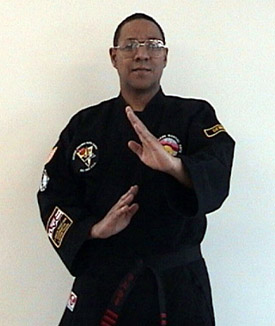About Duncan's Martial Arts Academy
Who We Are
Duncan's Martial Arts Academy is the culmination of over thirty years of martial arts training by SiGung Edward R. "Rudy" Duncan. After spending many years training in a variety of styles ranging from Aikido to Tae Kwon Do and Kali-Escrima, SiGung Duncan began teaching Kempo around 1980. Over the next 20 years, SiGung Duncan taught in several locations such as Geddes, Camillus, Baldwinville, Court Street, and the North Area Athletic Club on Pond Street in 1998. As part of the North Area Athletic Club, the focus of SiGung Duncan's teachings became the youth of the surrounding neighborhood. While teaching at the North Area Athletic Club, SiGung Duncan had a policy of free martial arts instruction for anyone under 18 years of age allowed the Academy to positively impact the lives of many "at risk" youth. SiGung Duncan and the Instructors are very proud of the students that came to that location and how they have grown to become positive role models.
In 2004, Duncan's Martial Arts Academy moved to its new location. Located now on New Court Ave, SiGung Duncan and his instructors continue their dedication to the students and families providing affordable quality instruction.
The objective of the adult program is to develop well rounded martial artists, who have both the historical knowledge of their art as well as the ability to use it in an emergency situation. SiGung Duncan often invites masters of other styles to the Academy to guest teach. This allows the students to gain additional martial arts knowledge beyond the Kempo realm.
Our Honor Code
I promise never to use my martial arts training for any purpose that would convey a negative image of myself or my fellow students at Duncan's Martial Arts Academy. I also understand that the reason for my training is to improve myself, both mentally and physically, so that I am better able to make a positive contribution to society.
- EFFORT: The work that you do.
- Effort is the exertion of strength (physical and/or mental) in an attempt to achieve a desired result. The results gained from effort are directly related to the amount of effort exerted. Our objective is to require slightly more effort from our students than they think they can give. This allows them to slowly increase their ability to sustain maximum levels of effort.
- ETIQUETTE: Using good manners.
- Etiquette is the culmination of your personal manners. Etiquette is a generally accepted code of conduct when dealing with other people. Those who treat others in the way that they would like to be treated are most often using good etiquette. In the Dojo, students exhibit good manners by removing their shoes and bowing upon entering. Students who pay their class fees on time, listen to SiGung Duncan attentively, show up for special events, and help keep the Dojo clean are also showing their understanding of etiquette.
- CHARACTER: Who you really are as a person.
- Character is the sum total of personal qualities that make you who you are. We say that a person's character is who they are and what they do when they think no one is watching them. Everyone can be honorable and forthright when they know the public is a witness to their actions. We see the REAL person when an individual has the perceived opportunity to do something wrong without getting caught. Your character determines if you will do the right thing or the wrong thing.
- SINCERITY: The honesty and integrity of your intentions.
- We say that Sincerity is an honest promise. This means that you are an individual who keeps your word. We all know someone who often promises things, but rarely delivers on their promises. Conversely, most of us know someone who rarely fails to keep a promise. Obviously, we would rather be associated with the one who is sincere. Remember that others also feel the same way the next time you have the opportunity to keep or break a promise.
- SELF-CONTROL: Your ability to control your emotions and actions.
- Self control is the ability to control your own actions and emotions. As we mature into adults, we are expected to develop our levels of self control. When studying martial arts, self control is essential. We expect our students to show control of their bodies when practicing a technique or sparring. We also expect our students to control their minds when we intentionally make situations frustrating. Self control will not only help you avoid panic in a dangerous situation, but more importantly, it will help you avoid negative situations all together. Practice self control in the controlled setting of the Dojo so that you will possess it in the uncontrollable setting outside the Dojo.
